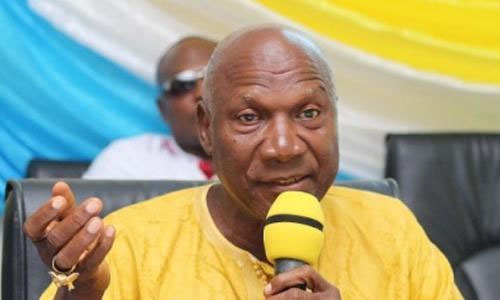‘Tighten your belt’ used to be a post-budget plea from government for citizens to bear with price increases in times past. For the main reason of increased taxation/revenue measures, prices of goods and services would suddenly shoot up immediately after a budget was read.
Thrice in 1966, 1972 and 1981, restless soldiers with no clue [knowledge] about budgets exploited them to overthrow republics.
An old soldier’s reaction to the last (2022) budget statement was ‘desperate;’ while the burly economist described it as a sign that the motherland is ‘broke.’ Put the two together and someone will say the pair is sounding gloom and doom to depict the motherland as desperately broke.
Somehow, an ISSER academic has debunked ‘broke’ with a blunt: ‘Ghana is not broke.’ Says he: ‘Any country that is broke should not be able to pay salaries.’ In fact, the ISSER boss’ colleague dons are so sure of their salaries flowing uninterruptedly that they have been striking for more.
Interestingly, I don’t readily recall the two words, desperate and broke, appearing in any of the seven or so successful or failed coup speeches. An exception would, perhaps, be ‘broken’ in the Kotoka February 24, 1966 Nkrumah overthrow broadcast announcement. In that speech, he said something was ‘broken.’ Specifically, ‘the myth surrounding Nkrumah has been broken.’ I am sure if one read the speech over and over between the lines, some word or group of words would interpret as ‘country broke.’ That is, because the results of that coup became ‘country broke or country no broke, we dey inside.’
An attempt was made to break the cycle of budget reading always being followed by price increases as a recurring phenomenon during the practice of Botchwaynomics in the 1980s and 1990s. In his budgeting model, taxes were increased with measures that were enacted outside budget announcements. Be it as it may, the approach ingeniously sought and achieved decoupling budget reading and taxing that triggered price increases which incited citizen dislike for, and discomfort with, government and its policies.
Botchwaynomics, which seemed to have somehow succeeded in arresting the phenomenon of post-budget price hikes, aimed at decoupling the hysterics of price hikes that accompanied the reading of budgets from reading of the budget. That was the development economics as propounded and implemented by the law don
He, who was in charge of the motherland’s budget making, had been teaching at Dar-es-Salaam University in the 1970s. There, he must have been influenced by the socialist, left wing thinking and persuasion of the theory of political economy taught in that university and practised in Nyerere’s Tanzania.
His socialist experience though seemed to have disappeared, as if it never happened, a she turned 360 degrees to the right wing Bretton-Woods capture, kill and destroy capitalism. In reality, it was development of underdevelopment; and the economic model in practice during the congress administration from 1982 to 2000, in managing the finance and economic planning of the motherland. For whatever its worth, the strategy seemed to have worked to separate budget reading and price increases.
Lately, though, my compatriots and I, seem to have been returned to the days of budget announcement triggering rise in pricing of goods and services. We seem to have forgotten the devaluation in a budget that led to a January 13, 1972 coup d’etat. It is what has encouraged some to term our motherland economy as desperate and broke projecting a feeling of despondency and hopelessness. I personally feel that, largely, we sunk to that level and we shouldn’t be forced there.
As for broke and desperate, in fact, we have always been broke and desperate. The group responsible for that condition has been the P/NDC. So why are they able to still use our scarce resources, if we are, indeed, broke and desperate, to undermine the little democracy we have found for ourselves? Why should they be encouraged to take over this suffering nation in 2024 as if we have never seen anything worse and broke for the 28 out of the 64 years of the existence of the nation Ghana?
Results of the P/NDC rule have always been ‘country broke or country no broke, we dey inside.’ They have always been unwillingly dispatched from power because they have never fed themselves to the full. They will never feed themselves to full; let no one delude themselves into thinking that. ‘Wo fa wansena ho ahi a, wobere wo kuro’ (if you drive the fly away from your sore in rage, you’ll end up striking the sore).’
So, let me continue to remind you my compatriots to beware of displacing your anger and frustration over whatever the NPP is doing onto voting the NDC in 2024. Should that abominably happen, you’ll see sɛ, nokoyɛjɛɛ, as you saw 2009 to 2016. By then, it’ll be too late to retrieve your vote.
I just ran into a professor of economics colleague I hadn’t seen for some time and we immediately struck into conversation about the minority resistance to a budget that pays them. Baanuako conversation receiver taxed, monitoring corruption by assets tracking, lawmaking ex gratia booty handouts. He had some interesting things to say about cutting expenditure, such as doing away with a lawmaker making GH¢4,000,000 ex-gratia payout every four years and collecting sitting stipend in addition to a GH¢30,000 salary per month.
He thinks we should aim at balanced budgets by cutting our coat according to our cloth. It would also require aggressively ensuring effective assets tracking to see where stolen public money ends up. Of course, we will still be short, unless we enforce the regulations that, in the first place, check stealing from the public funds. That, though, is one thing congress people won’t ever do. If we are looking for solution then, we should forget ever giving them votes to superintend the public purse.
By Kwasi Ansu-Kyeremeh

